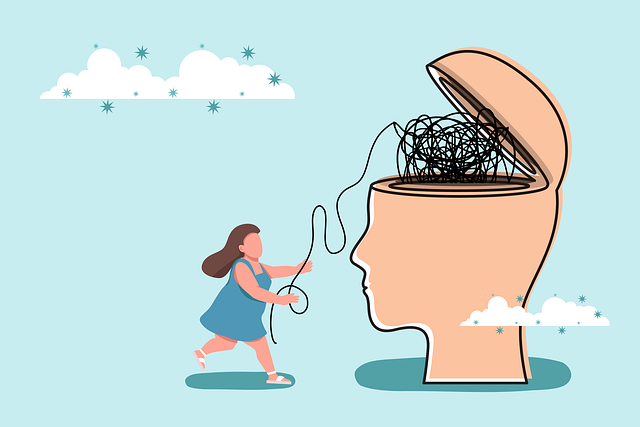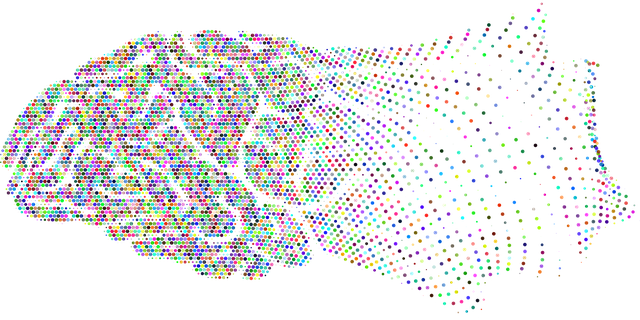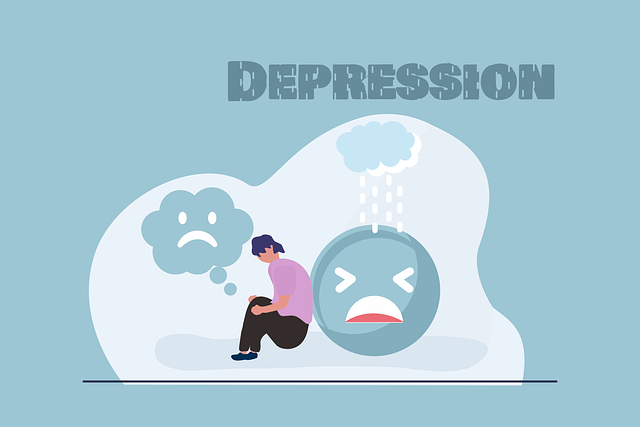Community-focused Superior Hypnosis Therapy (SHT) is a powerful tool for improving mental health. By identifying specific groups like young adults, seniors or veterans and their unique challenges (depression, PTSD, exam anxiety), therapists can tailor SHT techniques. Public awareness campaigns dispel myths about hypnosis, while strategic partnerships with local organizations expand reach and integration of emotional well-being promotion techniques. Accessible, confidential community outreach programs, featuring welcoming environments and skilled practitioners, leverage SHT principles for profound individual and collective transformations. Success is measured through participant data analysis to ensure ongoing program refinement and sustainability.
Community outreach programs play a pivotal role in bringing essential services to diverse populations. This article explores the strategic implementation of such programs, focusing on superior hypnosis therapy. From understanding community needs and identifying target groups to designing engaging outreach strategies and building partnerships, each step is crucial for success. We’ll delve into best practices for implementing accessible and confidential therapy sessions, as well as measuring the impact and sustainability of these initiatives.
- Understanding Community Needs: Identifying Target Groups for Superior Hypnosis Therapy Programs
- Designing Effective Outreach Strategies: Engaging and Educating Communities
- Building Partnerships: Collaborating with Local Organizations and Businesses
- Implementing Therapy Sessions: Ensuring Accessibility and Confidentiality
- Measuring Success: Evaluating the Impact and Sustainability of Community Outreach Programs
Understanding Community Needs: Identifying Target Groups for Superior Hypnosis Therapy Programs

Understanding Community Needs is a pivotal step in implementing effective Superior Hypnosis Therapy programs. By identifying target groups within the community, therapists can tailor their approaches to address specific challenges. For instance, young adults might benefit from Depression Prevention initiatives that utilize hypnosis as a tool for emotional resilience, while senior citizens could find solace in relaxation techniques aimed at alleviating age-related stress and anxiety. Public Awareness Campaigns Development can play a crucial role in educating the community about the benefits of hypnosis, dispelling misconceptions, and encouraging individuals to seek help for various mental health issues.
Community outreach goes beyond identifying target groups; it involves assessing the unique emotional healing processes that resonate with different segments of the population. For example, a program designed for veterans might focus on helping them cope with post-traumatic stress disorder (PTSD) through hypnosis, while a youth initiative could address common challenges like exam anxiety or self-esteem issues. This tailored approach ensures that Superior Hypnosis Therapy becomes accessible and impactful, fostering a healthier and more supportive community environment.
Designing Effective Outreach Strategies: Engaging and Educating Communities

Designing effective community outreach programs is a multifaceted process that requires careful consideration and strategic planning. Engaging and educating communities through these initiatives can significantly enhance mental health awareness, accessibility, and overall well-being. Incorporating cultural sensitivity in mental healthcare practice ensures that programs resonate with diverse populations, fostering trust and acceptance. For instance, understanding the unique needs and challenges of specific communities allows for tailored interventions, such as incorporating traditional healing practices or addressing language barriers.
Superior Hypnosis Therapy, when integrated into outreach strategies, can offer innovative solutions for community members. By combining therapeutic techniques with educational workshops, mental health professionals can facilitate conversations around stress management, resilience building, and personal growth. Furthermore, compassion cultivation practices play a pivotal role in creating inclusive environments that encourage open dialogue and support. Effective risk management planning for mental health professionals is essential to ensure the safety and well-being of both practitioners and community participants during these engaging sessions.
Building Partnerships: Collaborating with Local Organizations and Businesses

Building strong partnerships with local organizations and businesses is a cornerstone of successful community outreach programs. By collaborating with entities like schools, community centers, and cultural groups, Superior Hypnosis Therapy can expand its reach and impact. These partnerships offer a unique opportunity to integrate Emotional Well-being Promotion Techniques into various aspects of community life, fostering a culture of support and resilience. For instance, workshops on Confidence Boosting and Anxiety Relief can be co-hosted, benefiting residents from diverse backgrounds.
Such collaborations also allow for the sharing of resources, expertise, and networks, amplifying the effectiveness of both parties’ efforts. Together, these entities can create holistic programs that address the mental health needs of the community, ultimately enhancing overall well-being and creating a more connected and supportive environment.
Implementing Therapy Sessions: Ensuring Accessibility and Confidentiality

Implementing Therapy Sessions within community outreach programs requires a deep commitment to accessibility and confidentiality. To make these sessions truly beneficial, organizations must ensure that participants feel secure in sharing their experiences. This involves creating welcoming environments free from judgment, with strict policies regarding the privacy of personal information. By prioritizing these factors, community outreach initiatives can provide a safe space for individuals to explore delicate topics, such as self-esteem improvement and emotional healing processes.
Superior Hypnosis Therapy plays a pivotal role in this context, leveraging the power of mind over matter principles to facilitate profound transformations. Qualified therapists skilled in hypnosis techniques can help participants unlock hidden potential and overcome psychological barriers. This holistic approach not only empowers individuals but also fosters a sense of agency, enabling them to take charge of their mental well-being. Ultimately, by integrating such therapeutic methods into community outreach programs, organizations can create lasting positive change on an individual and collective level.
Measuring Success: Evaluating the Impact and Sustainability of Community Outreach Programs

Measuring success is a vital aspect of community outreach programs, especially when evaluating their long-term impact and sustainability. It’s not merely about reaching out but ensuring that the initiatives have a profound and lasting effect on the target communities. One effective method to gauge success involves collecting quantitative and qualitative data before, during, and after program implementation. This includes tracking participant demographics, engagement levels, and feedback through surveys or interviews. By analyzing these insights, organizers can identify which strategies are resonating with the community and where improvements are needed.
For instance, a Superior Hypnosis Therapy program might measure success by assessing participants’ self-reported stress reduction levels, mental wellness improvements captured through journaling exercises, and their increased willingness to engage in empathy-building strategies. These metrics provide valuable guidance for refining and scaling up such initiatives, ensuring that they remain impactful and adaptable to the evolving needs of the community.
Community outreach programs that implement superior hypnosis therapy can significantly enhance mental wellness within targeted groups. By understanding community needs, designing engaging strategies, building strong partnerships, ensuring accessible and confidential sessions, and measuring success through evaluation, these initiatives not only provide valuable support but also foster a healthier, more connected society. Such programs have the potential to revolutionize local communities, making superior hypnosis therapy accessible to all who need it.














